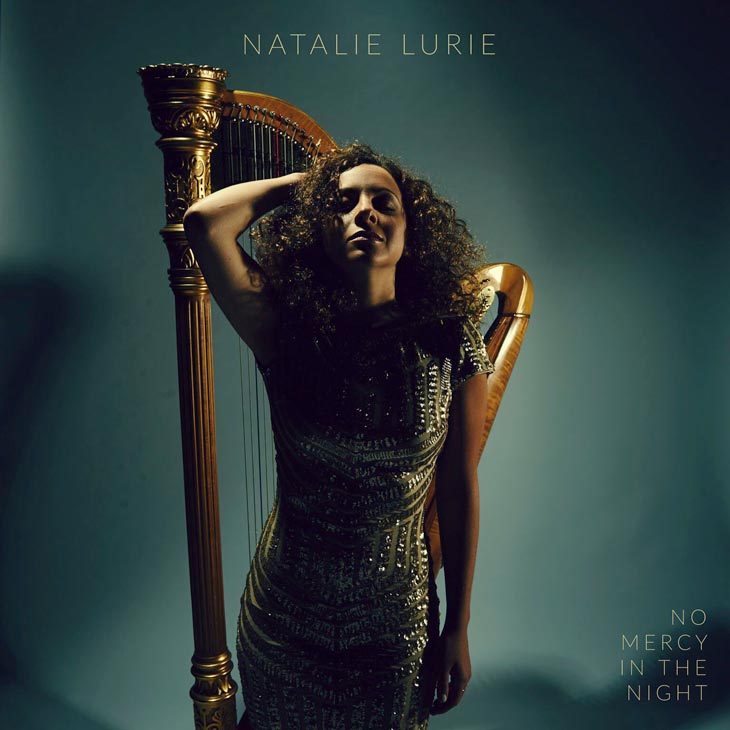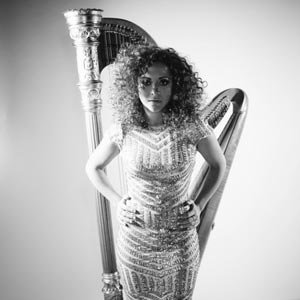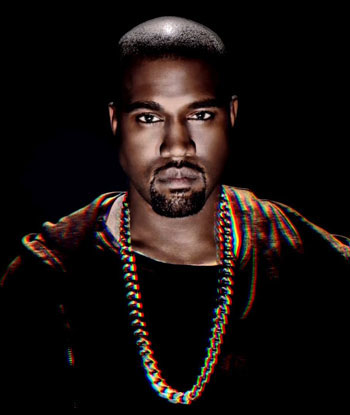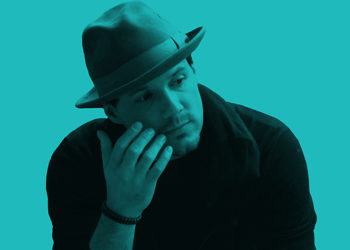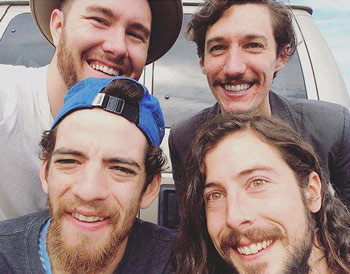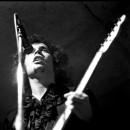Natalie Lurie 7 Questions
Falling in love with the harp when she was just seven years old, Natalie Lurie mastered her favorite instrument to find not only a unique sound, but her own voice. Lurie’s approach combines her love for a classical instrument and pop music in a search to redefine the sounds that permeate the mainstream. Fusing her poetic stringed instrumentals with pop vocals, she hopes to revive an element of Classical music.
With both her heart and talent on display, Lurie passionately divulges her love stories in a new single “No Mercy in the Night” released March 8—part of a four track EP with the same title released on March 25.
What originally attracted you to the harp and was it love at first sight?
It was definitely love at first sight. I grew up watching the Marx Brothers movies. Harpo Marx would hilariously fill the screen with his slapstick comedy, except for five minutes where he would dazzle the audiences with a virtuosic harp performance. Both the beauty of the instrument and his whimsical sense of humor made the instrument so appealing. Then when I saw a harp in real life at a music shop at age 7, I was instantly drawn to it. I refused to leave the shop until my mom agreed to let me take it home.
Where do you think the harp fits into pop music or does it?
I think the harp can fit into a lot of genres such as folk, rock, and blues, but lends itself particularly well to pop music. What makes the harp appealing, in my opinion, is that it is so versatile and has so much potential yet to be explored. Sonically and texturally, the options are endless.
What challenges do you face in bringing a classical instrument into the realm of pop music?
Music that’s popular and accessible has to have an element of familiarity. To make it stand out, it also has to have an element of novelty and surprise. Bringing a classical instrument like the harp certainly adds something fresh and innovative, but may feel too unfamiliar.
What inspires you about that challenge?
I’m attracted to the idea of pioneering a new sound for the harp. I don’t think it would be as rewarding to write and record music that fits a mold. There’s already enough music out there that’s great and formulaic. Unless I can create something new and meaningful, why add to that?
I think the harp can fit into a lot of genres such as folk, rock, and blues, but lends itself particularly well to pop music.
If you could collaborate with any artists producing music today, who would it be?
Justin Vernon from Bon Iver. Bon Iver’s music opened my mind to whole palette of sounds and music that’s vulnerable and raw.
What does it feel like, as an artist, to be vulnerable with your audience in expressing your feelings about a challenging relationship, as you do in the new ?
I chose to pursue music because I enjoy being vulnerable with an audience. That emotional connection with people is gratifying. However, I wrote the music for the EP over a year ago, so the emotions expressed in the songs are not nearly as raw as they were when I recorded it. Enough time has passed where I feel comfortable sharing these experiences.
You've traveled to different places such as Indiana, France and now Nashville. How do the places you live and play in impact the music you create?
The people and musicians I met in Indiana, France, Israel, and Nashville were all so different. Being exposed to so many different styles, genres, and cultures is inspiring, yet overwhelming when trying to find your place among it all. I spent a lot of time feeling isolated because my music never fit in perfectly in one place or environment, until I finally found how all these experiences could complement each other musically.

